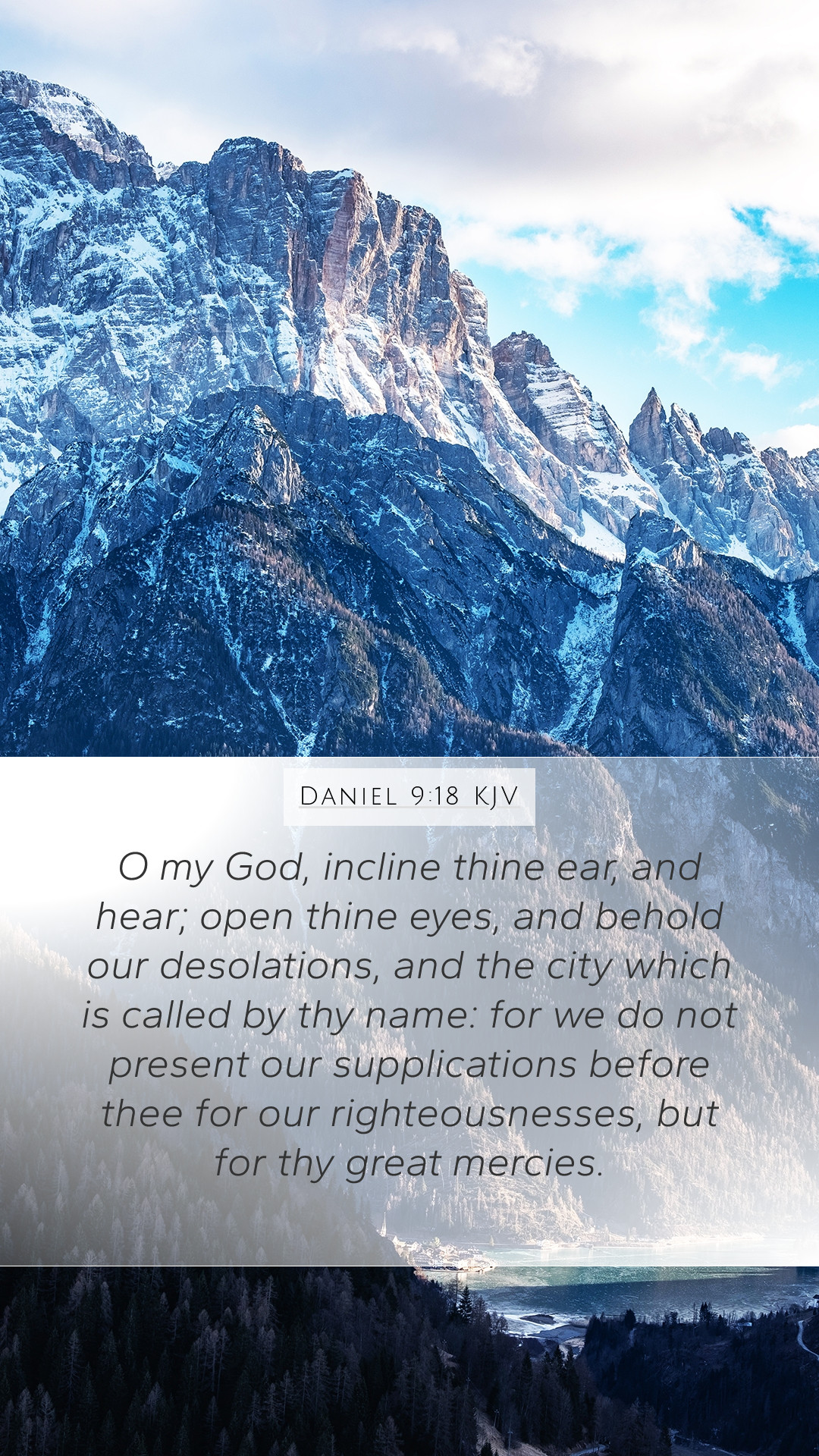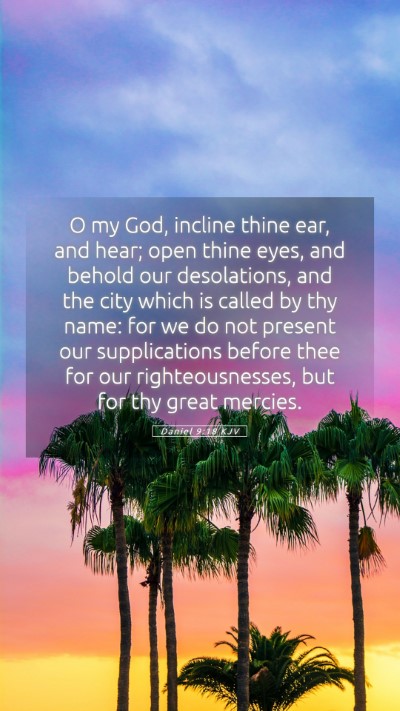Understanding Daniel 9:18
Contextual Background: Daniel 9:18 is part of Daniel's heartfelt prayer, where he seeks God's mercy and forgiveness for the sins of Israel. This chapter is crucial for understanding the themes of repentance, divine grace, and the restoration of the Jewish people after their exile.
Verse Text:
"O my God, incline Your ear and hear; open Your eyes and see our desolations, and the city which is called by Your name; for we do not present our supplications before You because of our righteous deeds, but because of Your great mercies." (Daniel 9:18)
Summary of Commentary Insights:
- Prayer and Petition: Matthew Henry emphasizes the importance of earnest prayer in seeking God's attention. Daniel acknowledges the dire state of Jerusalem and the need for divine intervention.
- The Nature of God: Albert Barnes highlights that Daniel appeals to God's mercy rather than the merit of the people. This illustrates the principle that God’s grace is foundational to receiving help, not human righteousness.
- Desolation Acknowledgement: Adam Clarke notes that Daniel’s recognition of the city’s desolation reflects a deep understanding of the consequences of sin and the need for restoration. He contrasts the present situation with the former glory of Jerusalem.
Main Themes:
Several key themes arise from Daniel 9:18 that contribute to its bible verse meanings and bible verse interpretations:
- Divine Mercy: The verse highlights the essence of seeking God’s mercy over personal righteousness, reaffirming that grace is a gift from God.
- Recognizing Sin: Daniel’s prayer points towards the necessity of acknowledging both personal and collective sinfulness as a precursor for receiving mercy.
- Intercession for Others: The act of Daniel praying for the nation showcases the model of intercessory prayer, where one petitions on behalf of others.
- Hope for Restoration: The mention of “the city which is called by Your name” signifies a hopeful expectation that God will restore His people and His dwelling among them.
Application of Daniel 9:18:
Understanding this verse can deeply enrich one’s bible study insights and personal bible study lessons. It challenges individuals to:
- Reflect on their dependence on God's mercy in their own lives.
- Engage in prayers of intercession for those around them.
- Acknowledge and confess communal and personal sins as a step towards reconciliation with God.
- Find hope and encouragement in God's promises for restoration and grace.
Related Scriptures:
This verse can be cross-referenced with the following scriptures for a deeper understanding:
- 2 Chronicles 7:14: A call for humility and prayer from the people of God.
- Psalm 51:1-2: David's plea for mercy highlights themes of repentance and cleansing.
- Lamentations 3:22-23: Acknowledges God's unending mercy and faithfulness, agreeing with Daniel's themes of restoration.
Conclusion:
In summary, Daniel 9:18 encapsulates the essence of seeking God in times of despair, emphasizing His unmerited mercy. This not only serves as a significant moment in biblical history but also provides profound Bible verse explanations that are applicable to the lives of believers today. By regularly engaging with scripture through bible study tools and resources, one can continually grow in their understanding of divine grace and the importance of prayer in their spiritual journey.


